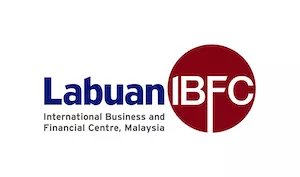Labuan International Business and Financial Centre (Labuan IBFC) provides a wide spectrum of financial products and services for corporations and individuals, both in the conventional and Islamic space. The jurisdiction has moved beyond banking, capital markets, leasing and insurance to also include protected cell companies, partnerships, trusts, foundations and an international shipping registry, among others.
Conducting business in Labuan IBFC is affordable due to low operational overheads, business tax exemptions, personal income tax exemptions for foreign talent, a strong network of banks and financial institutions with global reach and the ability to access most of Malaysia's list of double tax agreements (DTA) with foreign jurisdictions. Modern commercial real estate and co-working facilities are also widely available and relatively inexpensive.
However, she believes that it is Labuan IBFC's simple and straightforward tax system that encourages investors to take advantage of the attractive tax exemptions offered under the Labuan Business Activity Tax Act, 1990 (LBATA). Moreover, its unambiguous fiscal framework provides an ideal ecosystem for global companies to house their international dealings and transactions.
Flexibility in tax payments
Although Labuan is a federal territory within Malaysia, there are special tax exemptions for companies conducting Labuan business activities.
Under the LBATA, a Labuan-based company carrying out trading activities within Labuan IBFC will be taxed at 3% based on its audited accounts. In addition, Labuan registered companies are given the flexibility to pay an annual flat rate of RM20,000 instead. According to Ms. Chang, this is a relatively competitive tax regime.
The RM20,000 option is available to Labuan companies each year. Before filing the tax return, a company can complete a separate form to elect for the RM20,000 fixed sum instead of the usual 3% tax rate. In her experience, Ms. Chang said, clients with losses for the year usually opt to retain the 3% tax rate and would not make the RM20,000 election.
The option of a fixed amount of tax versus 3% tax rate is made available annually to suit each company's circumstances. This flexibility is a feature unique to Labuan IBFC.
Ms. Chang added: "If the company is a non-trading company, there's no tax at all." Being passive in nature, a non-trading Labuan company can hold investments from anywhere in the world, including Malaysia, and yet be exempted from any tax payments in Labuan. However, this exemption does not mean they escape the paperwork involved in filing, which is still required on an annual basis.
She countered that a company that does both trading and non-trading will be viewed as a trading company and hence will be taxed at 3% or RM20,000.
Other tax incentives available
Labuan IBFC has generous tax incentives for employees and expatriates. For example, non-Malaysians working in a Labuan company get to enjoy 50% tax exemption from personal income taxes.
Foreign nationals on the board of directors for Labuan companies and receiving director's fees enjoy tax exemptions as well. Such incentives are awarded to encourage foreign professionals to be employed by companies in Labuan IBFC.
Other tax exemptions that are available in Labuan IBFC include exemption from stamp duty and indirect taxes. All instruments related to Labuan business activities are exempted from stamp duty. Stamp duty is also excluded in the buying and selling of shares in a Labuan company, or in setting up a Labuan company.
Withholding taxes on interest, technical fees and royalties are also not applicable when payments are made by a Labuan company to non-residents or other Labuan companies.
Double tax agreements help tax planning
Double tax agreements (DTAs) are important when structuring investments abroad and Malaysia as a key trading nation has more than 70 DTAs in force.
When investing overseas, a Labuan company wanting to access DTA benefits may need to request for a certificate of residency from the Malaysian tax authorities. This tax-resident certificate is issued by the Inland Revenue Board (IRB) or Malaysia and subsequently shown to the foreign tax authorities overseas.
To obtain this certificate from the Malaysian IRB, the Labuan company needs to prove it has control and management in Labuan or Malaysia such as directors' meetings held in Labuan / Malaysia and a bank account in Labuan / Malaysia.
The drive for substance and value creation
In view of widespread concerns and demands for tax transparency amid a rapidly globalising economy, the Organisation for Economic Co-operation and Development (OECD) presented a comprehensive action plan to curb tax base erosion and profit shifting (BEPS). Fifteen specific actions were proposed to advise governments on the domestic and international instruments required to prevent corporations from paying little or no taxes.
Similarly, as the official statutory body responsible for the development and administration of Labuan IBFC, the Labuan Financial Services Authority (Labuan FSA) intends to upkeep a strong regulatory and supervisory regime in the jurisdiction and continually enhance its drive for substance and value creation.
For instance, a Labuan company needs to prove that it has an office, staff, and a bank account in Labuan IBFC. Over the past two to three years, the Malaysian IRB has also been stressing on substance in Labuan which is in line with the increased spotlight on corporate tax obligations worldwide.
The impetus for such measures is to avoid a situation where companies attempt to bypass Labuan tax laws by presenting no physical evidence of the company's existence in Labuan IBFC.
Banks and insurance companies based in Labuan IBFC can also apply to co-locate their marketing offices within Malaysia to carry out permissible Labuan business activities, subjected to Labuan FSA's approval. However, the role of the marketing office is limited to facilitating meetings with clients and establishing contacts with potential clients. No maintenance of books and records (including trading activities) can be done through, from or in the marketing office.
Strong network of banks and financial institutions
Labuan IBFC has a well-established banking and financial system that makes it an attractive location to hold investments. Many international entities are domiciled in Labuan IBFC due to its flexible and preferential tax treatment and low-cost company set-up.
Foreign exchange control rules generally do not apply to Labuan entities or structures.
Labuan has attracted over 50 international banks, more than 200 insurance and 40 trust companies and more than 200 Leasing companies. In addition, Islamic finance funds and entities have set up in Labuan and Labuan is also home to the world's first takaful captive.
Conclusion
Labuan IBFC is an appealing low tax jurisdiction for investors. Its straightforward and flexible tax system means that companies and entities can enjoy very attractive tax rates, substantial exemptions and simple tax filing process.
With its continual drive to offer operational, commercial and economic substance, Labuan IBFC has emerged as the ideal jurisdiction to cater to the varied business needs of ASEAN and connect the region's economies.
How to qualify for preferential tax treatment under the Labuan Business Activity Tax Act 1990 (LBATA)?
To qualify for the preferential tax treatment under the Labuan Business Activity Tax Act 1990 (LBATA), a company has to be set up in Labuan IBFC and carry out its business activities in from or through Labuan.
Ms. Chang clarified that the term "Labuan business activity" refers to any trading or non-trading business in Labuan IBFC. A Labuan company must carry out business from or through Labuan IBFC in a foreign currency (i.e. in non-Ringgit). The company also has to transact with either a non-resident, or another Labuan-incorporated company. Certain limited activities may be carried out with Malaysian residents such as Labuan banking and leasing.
Speaking on "Labuan – Taxation Regime and Structures" at the Legal Structures for Private and Corporate Clients event, a collaborative effort by STEP Malaysia and Labuan IBFC Inc., Ms. Chang said: "A Labuan trading company is a company involved in any active business such as banking, insurance, management, and licensing.
"Non-trading is more passive in nature, as a company is set up to hold investments. This could be an investment holding company, holding shares, stocks, bonds, properties or even deposits. No tax is levied in Labuan on non-trading businesses.
"Both trading and non-trading companies fit the description of 'Labuan business activity' provided they also fulfil the two key criteria mentioned earlier: that transactions are carried out in non-Ringgit currencies, and with a non-resident or another local company in Labuan."
The content of this article is intended to provide a general guide to the subject matter. Specialist advice should be sought about your specific circumstances.

